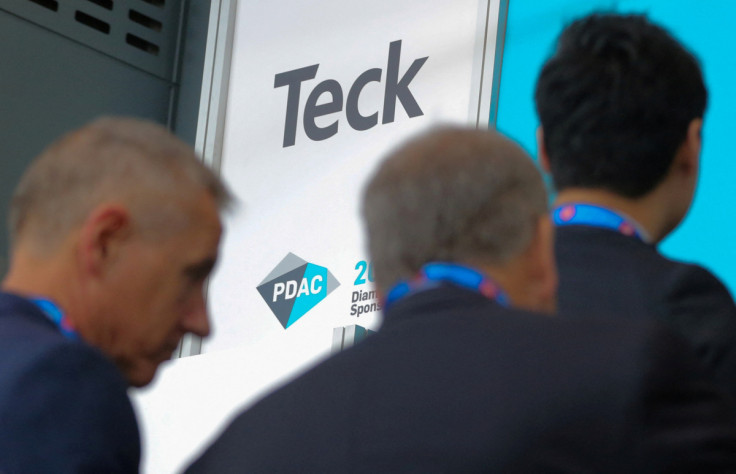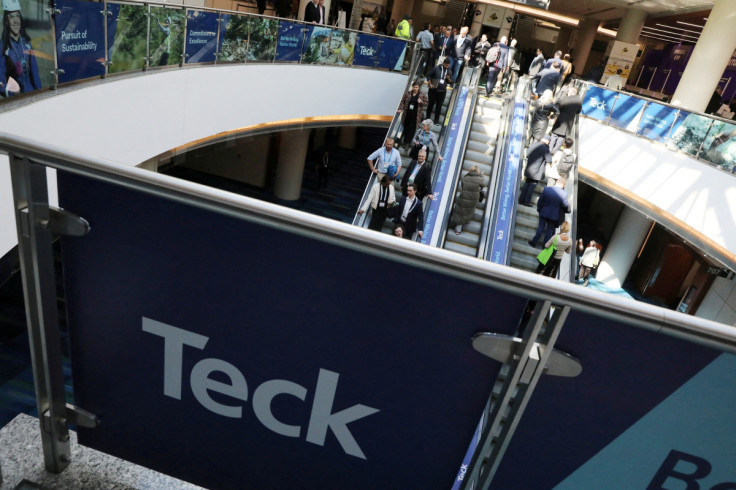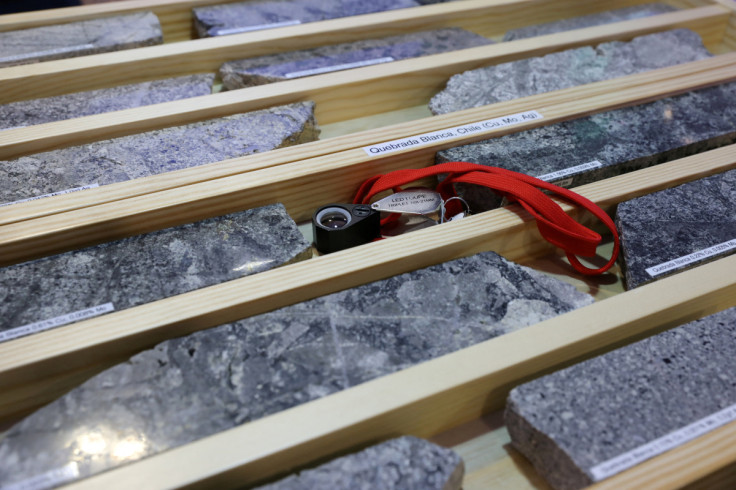Investors Question Teck On Climate Even After Canadian Miner's Coal Spin-out

Investors have yet to embrace Canadian miner Teck Resources Ltd's proposal to spin off its highly polluting coal business and focus on production of copper to help supply society's move toward electric vehicles.
Last month, Teck announced a split into copper-focused Teck Metals and Elk Valley Resources (EVR), which will focus on high-margin coal for steel making. Initial euphoria sent Teck shares higher, but since then, lingering questions about CO2 emissions at both companies have slammed the stock, which has lost a fifth of its value.
"I think the spin off makes sense in that it hard codes Teck Metals' transition plan," said George Cheveley, portfolio manager at London-listed asset manager Ninety One.
"However, they will also need to articulate a very clear transition plan for Elk Valley Resources as that is the company taking on the coal. This needs to be a credible plan as well and, whilst it can be longer term, it needs to demonstrate how they can support decarbonisation."
The company has long debated how to transition to a greener future and attract investors concerned about environmental, social and governance (ESG) issues without losing profits or revenues from its highly polluting coal mines.
The divorce of Teck's operations is messy from an environmental perspective. Key remaining questions include exactly when Teck will cut ties with EVR. The coal miner is set to pass through 90% of its free cash flow into the copper business for at least a decade.
Profitable assets that emit a lot of carbon present a dilemma for Teck and peers whose other operations could put them at the forefront of the transition to clean energy.
As markets begin to more accurately price climate risks and opportunities, some corporate boards are more open to spinning out carbon-intensive operations to attract investors and lower the capital cost of their environmentally friendly operations.
Other mining companies have also split off coal assets. Brazilian miner Vale, for example, has said it will separate its base metal and iron ore business to prepare for future growth from the electric vehicles market.
In 2021, South African miner Anglo American demerged and listed its thermal coal business. Some investors criticized the company, saying it undervalued its environmental liability costs, but the company called their analysis "flawed".
Teck told Reuters EVR was committed to maintaining "strong" social and environmental performance, including reaching net-zero emissions by 2050, and would establish a trust to fully cover long-term environmental obligations.
However, Todd Kapala, vice-president and co-head, Canadian Equities of Addenda Capital, which owns a stake in Teck, said more was needed: "We want to see further leadership on reducing greenhouse gas (GHG) emissions."
Before the split was announced, investors had had only partial success in pushing Teck to align its transition plan with the world's climate goal, and still had questions about issues including its short-term emissions targets.
In its assessment, the Climate Action 100+ investor group said Teck had also yet to align its capital expenditure plans with the goals of the Paris Agreement on climate, which aims to limit global warming to 1.5 degrees Celsius.
A recent study by the International Finance Corp said miners must reduce emissions by almost 90% to make it worthwhile to dig out copper and other metals required for EVs.
"The full implications of Teck's spin-out are yet to be understood - we are still in early days," said Anthony Schein, Director of Shareholder Advocacy at Canadian shareholder engagement group SHARE, which is co-leading talks with Teck on behalf of CA100+, including about "the implications of this spin-off for climate action".
SHARE SLIDE
The questions have weighed on Teck shares, which lag mining industry peers. Nippon Steel Corp which in the new structure will own 10% of EVR, has said it is open to increasing its stake to 17% and is also seen as likely long-term majority owner of the assets.
Teck is by no means the worst performer on ESG issues. Sustainalytics, a leading provider of ratings used by investors, rated the company 7th out of 216 diversified metals companies while MSCI graded it a "leader" among 72 companies. Refinitiv, part-owned by Reuters parent company Thomson Reuters, ranked Teck 14th out of more than 400 peers.
"The coal business is profitable for now, and using its proceeds to fund its copper business is a pragmatic way towards transition," said Dustyn Lanz, Senior Advisor ESG Global Advisors.


© Copyright Thomson Reuters 2024. All rights reserved.





















